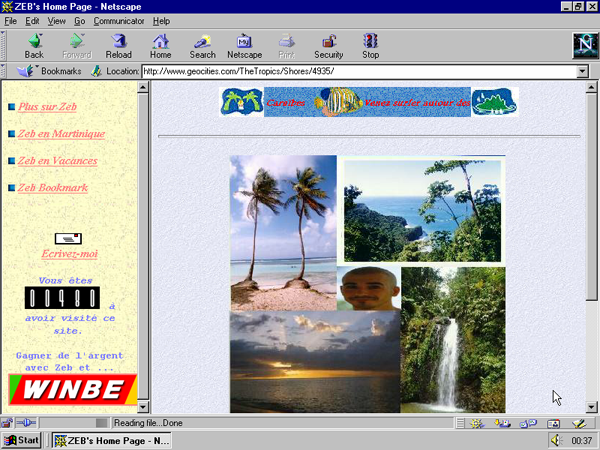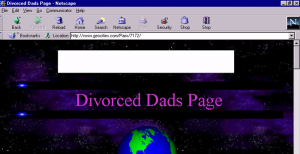Nestling themselves in a defiantly naïve internet aesthetic, Olia Lialina and Dragan Espenschied have been working with each other for years and it shows. Sharing an easy manner and dead pan sense of humour, the net artists, researchers and editors of Digital Folklore have had a wealth of experience to draw from when elaborating on their work keeping the home pages of now defunct free web-hosting service, GeoCities, in circulation. For their One Terabyte of Kilobyte Age exhibition at the Photographer’s Gallery, it’s not enough to collate and archive the 1,000+ gigabytes of user culture discarded when social media networks like Facebook and Twitter conquered with their user-friendly templates and official presentation. That meant a restriction on what Espenschied calls the “extreme creativity” of the ordinary people that migrated towards it.

A pioneering force in digital archaeology, taking particular interest in the behaviours and interactions among non-professional web users, Lialina and Espenschied explore the graphic motifs and aesthetics that recur within this fascinating, idiosyncratic culture, from generic star and water-themed wallpapers to the creative use of scroll bars. The origins of ubiquitous gif animations like Chuck Poynter’s the famous dancing girl and three-chord piano music as “the sound of low bandwidth” make for fascinating discussion. That’s especially when exploring it from the view of that pervasive misconception that net art and culture can exist independently of context. Hence, Lialina demonstrates how an early artwork has changed through time –as browsers, operating systems and software evolve –as well as the problems of presenting net art in other increasingly archaic formats, like print and in galleries. The latter, with the expectation of low-res imagery working IRL and the former with its own typographical and design language, means the mutation of the work’s original intention becomes inevitable.
In the context of a continually fluctuating internet culture, it’s a matter of course that net art would shift with it but what Lialiana and Espenschied are here to promote, is an awareness among its users that their own personal narratives are at risk, when allowing for what they call the “professionalisation of the web”. Because as the pervasive reach of social media networks and their templates supersede that online DIY culture that the GeoCities homepage represents, then they’re not only restricting a users capabilities for self-expression but appropriating and controlling their histories -that transient “digital folklore”, if you will.
By drawing from the crude aesthetics and bizarre nuances of early user culture, as seen in collaborative works like Zombie & Mummy (2003), Lialina and Espenschied show that user culture is important too and well worth preserving.**
Olia Lialina & Dragan Espenschied’s One Terabyte of Kilobyte Age runs from April 18 to June 17, 2013.
share news item



